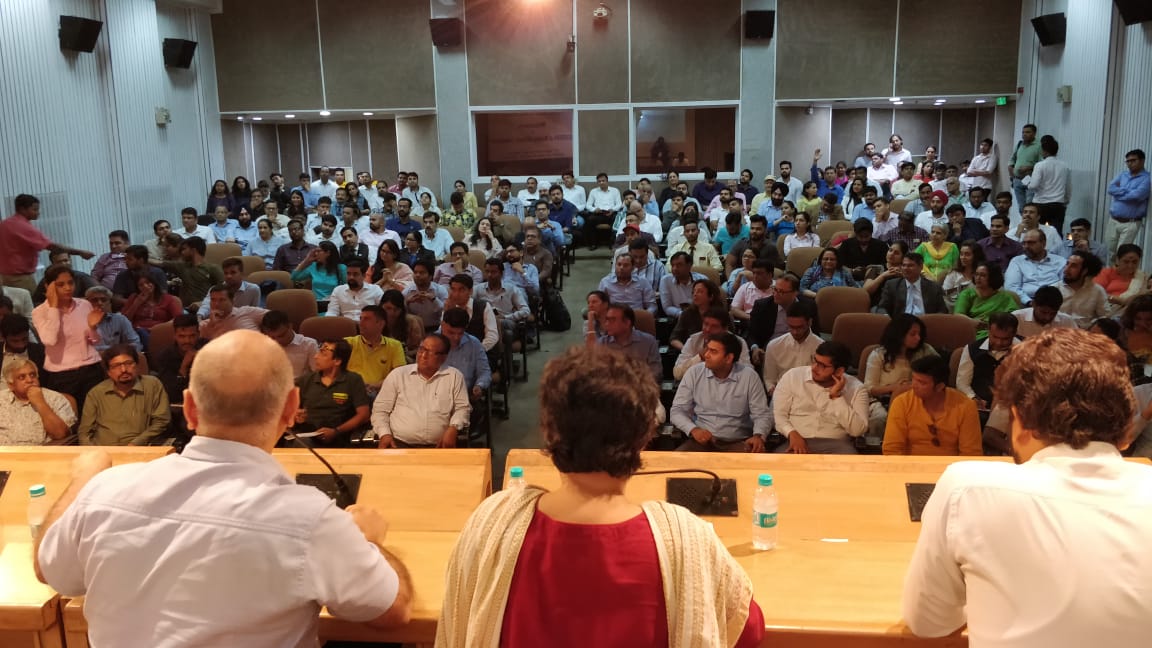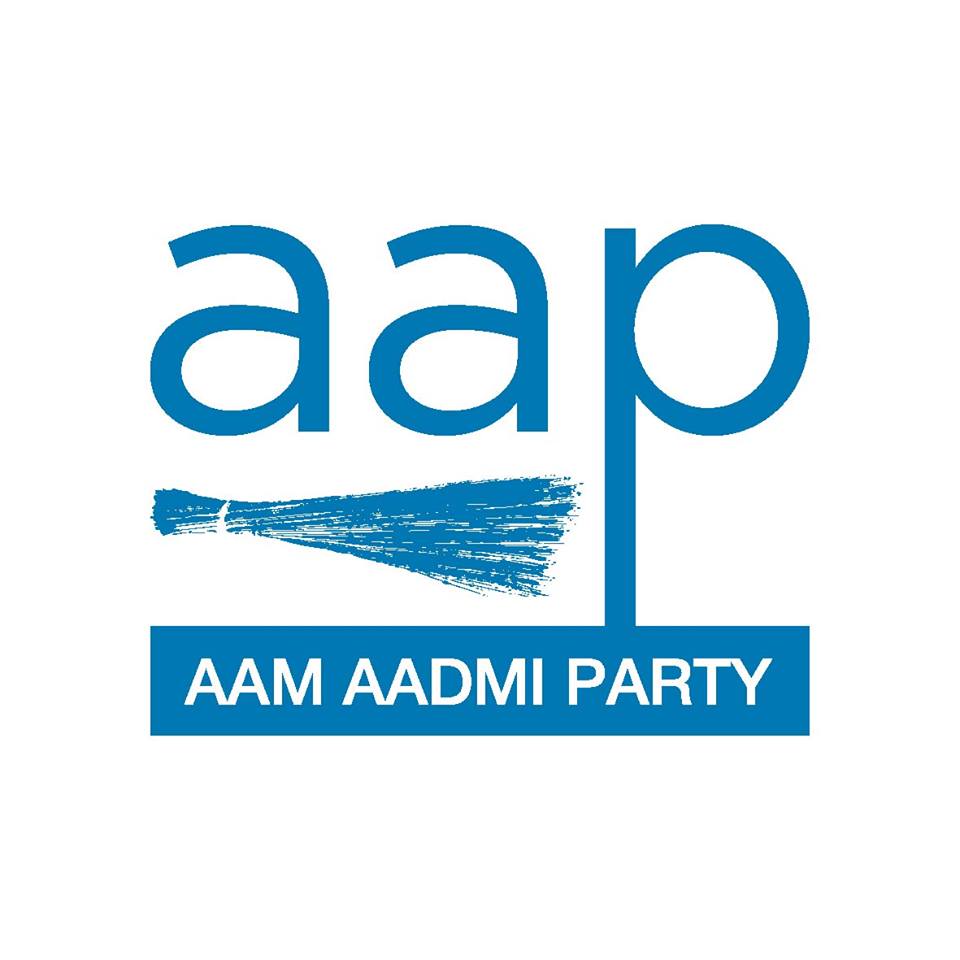
Office of the Deputy Chief Minister, Government of Delhi
Only an entrepreneurial mindset will lead to faster GDP growth: Dy CM Manish Sisodia
– Dy CM Manish Sisodia interacted with 250 entrepreneurs today at the Delhi Secretariat
– Over 1,000 entrepreneurs across Delhi already on board to participate in Entrepreneurship Mindset Curriculum
– Edtech, event management, handicrafts trade, retail entrepreneurs among those who will interact with students
New Delhi, 8 August 2019: Deputy chief minister Manish Sisodia addressed a group of 250 entrepreneurs on Thursday at the Delhi Secretariat Auditorium. With today’s interaction, a total of 1,000 entrepreneurs have now been brought on board to participate in the Delhi government’s flagship Entrepreneurship Mindset Curriculum.
The entrepreneurs are from varied industries including education technology, event management, handicrafts trades, retail, among others. The government has invited the city’s community of entrepreneurs to engage with students of Classes 9 to 12 in Delhi government schools. The Deputy chief minister will continue to meet with entrepreneurs who have accepted the government’s invitation to participate.
During his interaction with the group, deputy chief minister Manish Sisodia said, “The larger goal is not just education but to work on the country’s economy by encouraging entrepreneurship. Only you can help us achieve this goal. If we want to see our economy grow faster we need to inculcate an entrepreneurial mindset in our students.”
Dy CM Sisodia said, “All of you who have studied from various educational institutions must have studied with other students. But it is you who have become entrepreneurs. What is the difference between you and the rest of your class? You have an entrepreneurial mindset. In terms of skills, perhaps you and others are at par when it comes to operating a computer, making spreadsheets on Excel. They are using the same skills working for someone else’s companies. You are using them for your own company.”
On his plan to implement the curriculum, he said, “We want to inculcate this entrepreneurial mindset among children studying in Classes 9 to 12. In DTU, IIIT if one tries to introduce this curriculum, it will not work. By that point students have already formed a view of the world and what they want to do. We have to target younger students to truly bring change.”
Explaining how the curriculum will encourage students to think about becoming entrepreneurs, Dy CM Sisodia said, “If we are to ask these students about Facebook founder Mark Zuckerberg, they might know about him. But they would not know the story behind the entrepreneur’s thought process and mindset. We have taken case studies of several such successful entrepreneurs, from Zuckerberg to MDH’s Mahashay Gulati to Bittu Tikkiwala, to Mumbai’s Dabbawalas to Krishna Achar. The stories will reflect their entrepreneurial mindset. Children will relate to their stories and they will realise that they can also achieve the same success.”
The government does not aim to drive students away from seeking employment. He said, “The aim is not to encourage all students to start their own businesses. But when the students go into professional colleges to become engineers, doctors, etc, then they should be equipped to process that education in order to be able to use it as entrepreneurs.”
‘Each student will interact with 40 entrepreneurs over the course of 4 years’
“We are additionally asking all students to identify 5 persons around them who are entrepreneurs and 5 who are employed somewhere. Over the course of the year we will facilitate guided interactions with these people. From Classes 9 to 12 we will ask each student to undertake this process each year. Over the four years we expect them to interact with 40 individuals and understand the nuances of entrepreneurship, understand the nature and scope of businesses, hear about the challenges and successes the entrepreneurs have experienced, learn about strategies they use to make their business successful. We even want children to be exposed to realities of harassment and corruption in the process of starting a business so they are prepared to take on challenges with confidence,” said Dy CM Sisodia.
We are going to give ₹1000 to each student as seed money. We want them start any business of their choice, even at a small scale, be it selling diyas for Deepavali, or even collaborate with other students and start something together. Perhaps they can pool in their capital and open a canteen for their school. These are ideas that we will not impose on children, they will come from them and people like you.
‘Impact of entrepreneurship mindset curriculum is transformational’
“Once a colleague of mine had stepped out to buy a corn bhutta. At the thela, he saw that a young boy was selling the butta. When he asked about his background he found that the boy was a student of a Delhi government school in Class 11. He shared how he and his mother together sell butta after his school to supplement his family income. When he asked the boy about how he felt to be working a thela even as a school student, the boy said that he had learnt in his entrepreneurship classes that no job is small or big. It was such a proud moment for us to know that this boy had the confidence to sell bhuttas with his mother and that Entrepreneurship classes were the source of his confidence. The impact of the curriculum has been transformational,” said Dy CM Manish Sisodia.
“These are theoretical ideas. But what I want you to participate in is one classroom interaction with each of you every month. That’s when they will truly open up with their questions and ideas. The answers to their questions cannot be turned into a module or tutorial. They have come to from you,” he said in his concluding remarks.


1 Comment